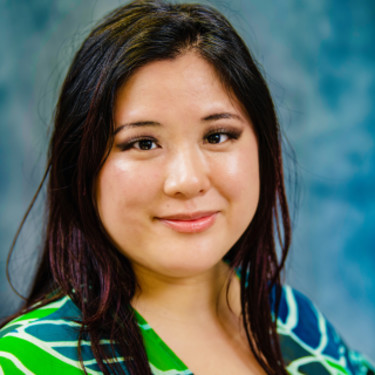Throughout my medical training and especially during fellowship in palliative care, I have observed that word choice matters a great deal in medicine. In the larger medical community, for example, we try to no longer use the stigmatizing and reductive terms “non-compliant” and “homeless” when what we mean is “having difficulty obtaining medication from the pharmacy” or “currently experiencing homelessness.” And in my field of geriatrics, we recognize that terms such as “geriatric,” “the elderly,” and “old people” can come across as ageist, so we often use “older adults” instead. These nuances may not be meaningful for all (e.g., some of my patients correct me and insist they are “old farts”), but it is important to me to recognize and respect patients’ identities through the words I use.
This extends beyond certain words to the format of documentation itself. For instance, I have noticed that in the EMR the standard arrangement of every note is something like: “40-year-old male with a past medical history of…” In other words, the person’s identity as, say, a gardener who enjoys germinating hydrangeas is stripped away and reduced to that of a sick person with a slew of conditions. I understand that we only have so much time and space for notes, but I still believe it’s important to rectify some of this reduction by getting to know our patients as people too. Just as we form differential diagnoses to explain the medical picture, it’s helpful to come up with a differential for explaining the person behind the picture.
As another example of the weight of words in medicine, the word “allergy” is more complicated than it first appears. In daily practice, we work hard to tease out the details of what a true allergy is for a patient, versus an intolerance or a preference against. Clarifying these details requires a careful dance — we have to get our information without the patient feeling insulted or dismissed. Rooting out the truth can be difficult: For example, a patient may have been told they have a penicillin allergy, but has never been administered it before. Or a patient may report an allergy to a medication, but it was actually an adverse effect. This difficulty can cause clinicians to be curt when it comes to patients’ non-allergy “allergies” — but I believe it’s important to treat patients with extra consideration in those moments, as they may have integrated the “allergy” into their self-concept. The stripping away of an identity that they may have held for their entire life is a true loss, and deserves some recognition.
Outside of the documentation context, word choice matters for sensitivity and clarity. For instance, I recall a time when our team was communicating with a family after a palliative extubation. The environment felt tense as the family anxiously awaited the transition of their loved one. As the trainee attempted to reach an interpreter through the phone, he declared, “Oh no, the phone is dead.” While this is a statement we commonly use, one that in any other situation is rather innocuous, here it felt jarring. In these emotionally fraught circumstances, ensuring a sensitive environment for the family was paramount.
However, we can also use “the wrong words” in a beneficial, humorous way, if it happens in the service of patient bonding. I once had a patient who exhibited minimal desire to engage with myself or the primary team. In a Hail Mary attempt to bond I asked about his favorite music. He initially ignored my question, but right as I was losing hope he said, “Josh Groban.” Tripping over my words in my excitement, I immediately said “Ah, a country music fan, are you?” As if snapping out of a daze, he laughed and said, “I guess you could say that.” When I went home that night I looked up the biggest Josh Groban hits and realized I had completely butchered the genre. However, in my coming visits with the patient, I would knock and ask for “Josh Groban” and together we would laugh and play his decidedly non-country music. I didn’t mind making a fool of myself that day. It may have been the wrong words, but that day they were the “right words.”
Ultimately, language isn’t just about rules and courtesy — it’s also a tool for bonding with patients. Not long ago, I had a patient who had experienced a TBI. He felt lonely in the hospital as he was awaiting discharge. As he was a poet, we played a game where every day I would bring him a word and he would bring me a word. I tried to pair my words with his mood or something he’d shared with me the day before. One of the words that I introduced to him was “kintsugi,” a Japanese term for repairing broken pottery with gold. The thought is that the piece after repair is more beautiful than before. Rather than hide the cracks, they become part of its story. As I shared this word with my patient, I motioned to the staples in his body that ran like train tracks. My patient responded that although the hospitalization had felt isolating, he realized how lucky he was to be alive, and saw the strength of the bonds he had made in his life with the visitors streaming through. Through the framework of kintsugi, he was able to recognize how his time in the hospital had been a gift.
My experience in medicine thus far has shown me that the right words (or the wrong ones!) can change the outcome of a situation. As I continue down my medical path, I vow to keep appreciating the power of language.
Do you have a favorite word? Share in the comments!
Dr. Helen Chen is an integrated Geriatrics and Hospice and Palliative Care Fellow in New York City. She is a food lover and is always on the look out for the best bahn mi, falafel, and tacos (although is allergic to red onion and avocado!). Her instagram is @gouda_vs_evoo. Dr. Chen is a 2023–2024 Doximity Op-Med Fellow.
Illustration by April Brust







